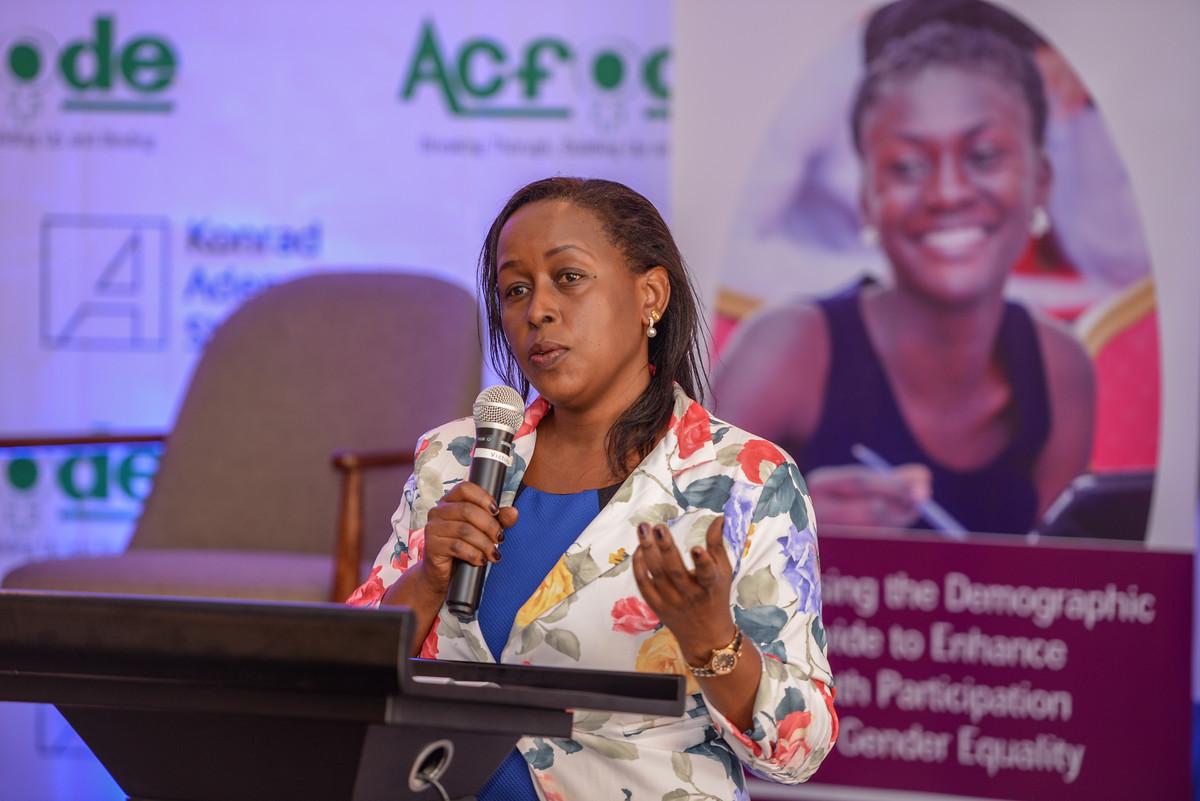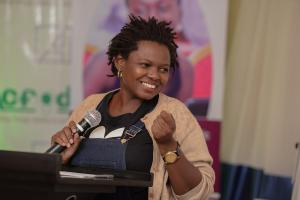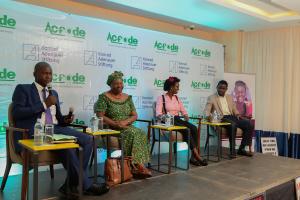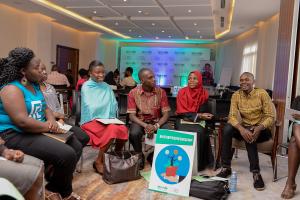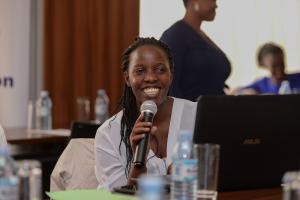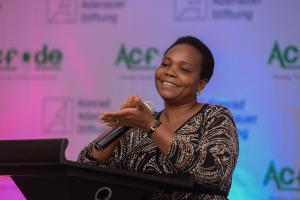In order to recognise and tackle these issues, ACFODE, in partnership with KAS Uganda, conducted an intergenerational dialogue on the 17th August 2017 in Kampala. The dialogue served as a forum for promoting exchange between younger and older generations on issues of gender equality. Opening the forum, Regina Bafaki, executive director of ACFODE, highlighted the necessity of an intergenerational dialogue, in order to increase senior support for youth causes and give young women a chance to learn from older generations. Ms Bafaki encouraged the participants to be open and critical during the dialogue and appreciate and utilise generational differences in the pursuit of gender equality.
The Vice Chairperson of the ACFODE board followed up by describing the various instances of exclusion of the youth from political participation. She remarked that women youth face additional setbacks when trying to engage in the politics of the country, due to their position as both young and female.
The opening remarks were followed by a brief plenary discussion centred on a keynote address given by Emmanuel Kitamirike, Executive Director of the Public Policy Institute (PPI). Mr Kitamirike emphasised the setbacks youth leaders face when mobilising their peers despite the existence of institutional provisions. He also noted that youth leaders are often not taken seriously by established members of the political apparatus.
After Mr Kitamirike’s remarks, the panel discussion was opened. Members of the panel included Dr Hilda Tadria, a founding member of ACFODE, and two young advocators for gender equality; Penelope Sanyu and Jacob Eyeru. Dr Hilda Tadria commenced the discussion by noting that there is a rift between younger and older women resulting in a lack of communication on the motivations, tactics, and goals of the broader women’s movement. Dr Tadria also highlighted the importance of the feminist ideology as a driving force for the gender equality movement, and rebutted arguments suggesting that feminism is an elitist ideology. Penelope Sanyu agreed that many young women are not exposed to women’s movements and traced this problem back to the lack of communication between the generations. Jacob Eyeru voiced the necessity to recognise feminism as a guiding ideology of the movement, despite its reputation as a radical or nonconformist school of thought. Mr Eyeru also demanded more support and participation for gender issues from men, citing the UN Population Fund’s argument that gender equality is a precondition for advancing development and reducing poverty.
The debate that followed tackled issues of power imbalance both in private and public spheres of life, the promotion of self-empowerment and self-reliance, gender-sensitive education for both men and women, the importance of support from men for women’s causes, and better accountability for violations of women’s rights. One participant questioned the fact that young people are often excluded from the planning and coordination process of forums on youth participation; an argument that resonated with many participants, many of which were young female students. The three panellists agreed that this was indeed a problem. Mr Eyeru noted that shortcomings in the women’s movement still exist because the empowerment movement is a process which naturally faces obstacles and must therefore be treated accordingly. Regarding the role of men, Dr Tadria clarified that it was not necessarily men per se that stagnated the movement, but rather the system of patriarchy in general.
The second half of the event comprised of conversation circles where the participants had the choice between four different topics: governance and leadership, gender-based violence, entrepreneurship, as well as media and ICT. The governance and leadership group focused on the challenges that young female leaders face when engaging in politics. These included corruption, lack of mentoring, nepotism, and being underestimated by senior political leaders. Participants analysing the state of young female entrepreneurs took notice of the challenges that young women often find when venturing into the private sector. The third group argued that women and girls still face widespread gender-based violence because of the existing power imbalance, which also perpetuates the dependency of many women on male figures in their community. Lastly, the media and ICT group recognised the importance of social media in mobilising young women and campaigned for the promotion of social media literacy across the country.
After the conversation circles adjourned their discussions, Mathias Kamp, KAS country representative, acknowledged the importance of combing the struggles of both women and the youth for the benefit of both. In conclusion, Asiimwe Stedia, Board Member of ACFODE, noted that violations of women’s rights affect the entire society, and not just women, which is why support for gender equality should come from all sectors of society.
Report compiled by Leandra Bitahwa



